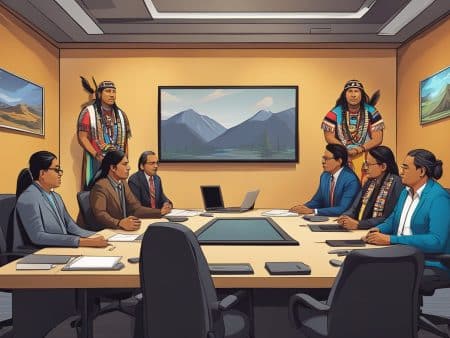The Approval of Bill 3626/23
The Brazilian Chamber of Deputies recently gave the green light to the government’s gambling bill, signifying a monumental step in the extensive journey to bring online gambling regulation to Brazil, the world’s 10th largest economy. Bill 3626/23, intended to replace the Provisional Measure (PM) previously issued by president Luiz Inácio Lula da Silva in July, underwent several amendments from its original form presented by rapporteur, deputy Adolfo Viana. Still, it maintains the legalization of online casinos and sports betting, though fantasy sports betting finds no place under this regulation.
Operational Restrictions and Requirements
The newly proposed legislation sets specific boundaries on the entrants to the Brazilian online gambling market. It exclusively allows companies incorporated under Brazilian jurisdiction, holding both headquarters and administrative operations within the country, to operate. The extent to which this might impede foreign operators is yet uncertain. There’s speculation that foreign companies might need local partnerships to navigate these stipulations.
Furthermore, operators are expected to meet other requirements. These include holding a certain minimum value of share capital, membership in a sports integrity organization, and adherence to other technical standards.
Taxation and Revenue Allocation
One of the more debated elements of the bill is its financial implications for operators. The standing 18% tax on revenue remains intact, though with additional contributions factored in, this could effectively increase to 31-34%. There’s been a notable shift in the revenue distribution: now, just 2% (down from 10%) is dedicated to social security, while 1.82% is allocated to the Ministry of Education, 6.63% for sports, and 5% earmarked for tourism. The licensing fee, set at $R30m, covers gaming operations for a single betting app, and any additional offerings necessitate another license. Notably, the licensing term has been shortened from five years to three.
Promotion, Advertising, and Player Safety
Prioritizing player safety and ethical practices, the bill emphasizes several critical aspects. Operators are bound by law to adopt and enforce anti-money laundering measures, counter-terrorist financing protocols, and promote safer gambling. This move towards responsible gambling is further evident as the bill prohibits the offering of bonus bets and credit lines to bettors.
In terms of advertising, unlicensed companies face an outright ban. Those that can advertise must adhere to strict guidelines, with violations prompting the Ministry of Finance to order ad removal. Additionally, certain individuals, such as senior leadership within operator companies, regulators, minors, and those directly involved in sporting events, are banned from placing bets.
Payment Rules and Offshore Gambling
The bill makes a determined effort to curb offshore gambling by implementing strict payment regulations. Only institutions with the Central Bank’s approval can offer payment services. Moreover, players can only transfer money from their betting accounts to bank accounts headquartered and administratively based in Brazil.
A Historical Context of Brazil’s Gambling Regulation
Brazil’s path to gambling regulation has been winding. In 2018, Brazil saw the Federal Senate approving Federal Law No. 13,756/18, targeting fixed-odds sports betting regulation. This law granted the government’s Secretariat of Evaluation, Planning, Energy, and Lottery (SECAP) a four-year window to finalize the regulations. However, the journey hit a roadblock when outgoing president Jair Messias Bolsonaro didn’t endorse the new regulations, casting shadows over years of legislative work.
But hope was reignited with the election of Lula, who, despite past controversies linked to a 2007 gambling scandal, was anticipated to regulate sports betting for funding social initiatives. True to these expectations, in July, Lula’s administration introduced the PM that instated nationwide sports betting. For PMs to gain permanence, they need the approval of Congress within 120 days.
Looking Ahead
With the Chamber of Deputies stamping their approval, Brazil stands on the precipice of a new online gambling era, awaiting only the Federal Senate’s decision. The country’s evolution in this sector is evident, from initial hesitation to impending nationwide regulation. This transformation not only signals Brazil’s progressive approach to online gaming but also showcases the nation’s commitment to ensuring safe and responsible gambling practices for its citizens.





